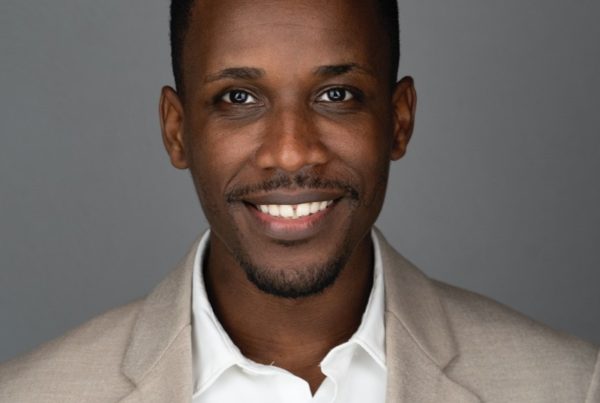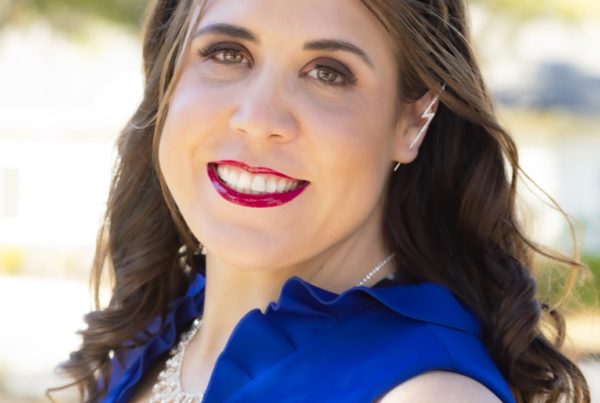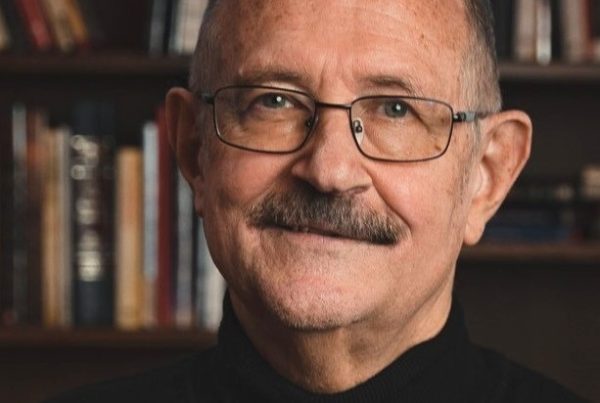Podcast: Play in new window | Download
Subscribe: RSS
How can the GAIN theory help you live in the present?
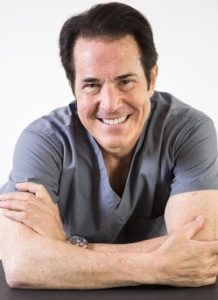
Dr. Greg Hammer
Greg Hammer, MD is a pediatric intensive care physician, pediatric anesthesiologist, and professor at Stanford University Medical Center.
A member of the Stanford WellMD initiative and the Wellness Committee for the American Society of Anesthesiologists, Dr. Hammer is currently the Chair of the Physician Wellness Task Force for the California Society of Anesthesiologists. He has been a visiting professor and lecturer on wellness at institutions worldwide and teaches his GAIN method to medical students, residents and fellows at Stanford.
Dr. Hammer’s clinical focus is in pediatric cardiac anesthesia and pediatric critical care medicine. His research is in developmental pharmacology and immunology, and he has an active laboratory with multiple ongoing studies in these areas.
He has published widely on topics related to pharmacology and perioperative care of children undergoing cardiac and thoracic procedures as well as organ transplantation. Dr. Hammer is a health enthusiast and meditator, utilizing a non-duality and mindfulness-based approach, including the GAIN method, and is the author of GAIN without Pain: The Happiness Handbook for Health Care Professionals, which was released May 15, 2020.
What We Discuss with Dr. Greg Hammer in this Episode
- Why he wrote a happiness handbook
- His G.A.I.N. theory of happiness and well being
- The science behind mindfulness and gratitude
- Turning personal tragedy into something beautiful
- How to avoid burnout as a healthcare professional
Transcript Highlights
The reason behind writing his book, GAIN Without Pain
Dr. Greg Hammer has been a longtime fitness enthusiast and has also studied nutritional science. His deep interest in meditation and nutrition made him realize how important yet underutilized nutrition is in terms of well being. He has been a lifelong seeker of meditation. About 10 years ago, Dr. Greg had an epiphany and realized there’s nothing more to seek. He realized the whole purpose of life was to find happiness and the true nature of happiness is attained when one sinks into their heart and accepts reality as it is.
This is how he got into wellness for medical practitioners and became involved in a cutting edge program at Stanford. He started getting recognized now not just for his research or clinical practice but also for wellness. Dr. Greg believes in acknowledging universal signs and for him all the arrows were pointing at spreading his message in the form of a book.
The G.A.I.N Theory of the book
G.A.I.N. stands for Gratitude, Acceptance, Intention and Non-Judgment.
Gratitude is the core of happiness. One can be happy in any condition – i.e. blindness, physical disability, or poor financial background. Resilience and happiness go hand in hand; there are no happy people who aren’t grateful. Even during the COVID pandemic, there’s a lot to be grateful for. We have many advantages right now that people didn’t have 100 years ago. Things could have been much worse.
Acceptance talks about how the world is full of pain and suffering. There’s always something happening in the world and apart from that there’s our personal suffering. Dr. Hammer’s book talks about how to avoid the spiritual bypass and discern between what we can change and what we cannot change.
Intention speaks about mindfulness, which is being aware in the present moment. Most people dwell in the past and obsess over the future. We tend to remember the negative and forget the positive. Intention helps us recognize that we can rewire our brains.
Non-Judgement teaches us about ourselves and about others. As people, we are used to labeling things, judging people, and comparing ourselves, and in the process we judge ourselves more harshly. This is exhausting and pushes one into a negativity bias. Comparison helps us to see the world as it is and not label things or people like good or bad.
Turning personal tragedy into something beautiful
Greg shares his story about losing his 29 year old son and how devastating it was. His process of dealing with the loss of his son was a major learning experience for him to embrace mindfulness. He learnt the various ways how one can deal with loss of a loved one and that it’s a gradual process. He also accepted the fact that parents judge themselves harshly and go into the loop of, “If only I had done….”
Dealing with this loss helped him to accept what he couldn’t change. That’s how the concept of G.A.I.N. was formulated. He then modified his own meditation methods and incorporated the G.A.I.N. principles in his teachings.
The science behind mindfulness and gratitude
Mindfulness has been studied extensively as a therapeutic intervention. Gratitude is an important principle in making one aware of the present moment. The moments that make us happy are the ones we were fully present in. When people witness nature at its finest – mountains and oceans, they understand how small their daily problems are. Gratitude is about the moment to moment experience. The practice of gratitude on a daily basis helps us deal with stress easier. The effect of stress and the hormonal changes it creates in the body is known to mankind. The study of gratitude and compassion shows how it helps overcome the stress response and helps decrease stress on a physiological level.
How to avoid burnout as a healthcare professional
There are three domains that drive burnout:
Culture in Medicine – As a healthcare professional, people are trained to take care of their patients first, even if it’s at the expense of their own health. There’s a taboo around asking for help, as healthcare professionals are themselves healers. This culture has promoted the idea of not taking care of themselves.
Efficiency – Healthcare professionals are encouraged to take on more and more cases. Under many circumstances, the infrastructure and support is not sufficient for that. There’s a need for systems to make these practices more efficient.
Personal Resilience – We cannot change the system in a day but we can start taking small steps towards self care. The three basics of self care – sleep, exercise and nutrition is something that should be embedded by everyone, irrespective of their profession, to embrace the path of spiritual well-being.
Episode Resources 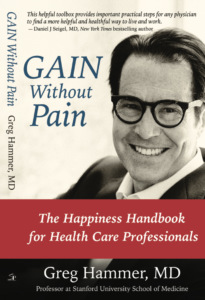
GAIN without Pain: The Happiness Handbook for Health Care Professionals
Connect With Dr. Greg Hammer
- Website: www.GregHammerMD.com
- Facebook: https://www.facebook.com/greghammermd/
- LinkedIn: https://www.linkedin.com/in/greg-hammer-02b20422/
Did You Enjoy The Podcast?
If you enjoyed this episode please let us know! 5-star reviews for the Leaders Of Transformation podcast on Apple Podcasts, Spotify, Pandora or Stitcher are greatly appreciated. This helps us reach more purpose-driven entrepreneurs seeking to make a positive impact in the world. Thank you. Together, we make a difference!
Additional Episodes You May Like
- 343: Nic Marks: Measuring Happiness and Wellbeing In The Workplace
- 333: John English: Creating a Stress-Free Workplace Through Mindfulness
- 331: Dr. Dravon James: Finding Your Everyday Peace
- 210: Julie Rosenberg, M.D.: Using Yoga To Enhance Your Leadership Abilities & Wellbeing
- 137: Melanie Benson: Overcoming Burnout & Growth Bottlenecks In Your Business
- 038: Eric Walrabenstein: Synthesizing Happiness In Your Everyday Life








